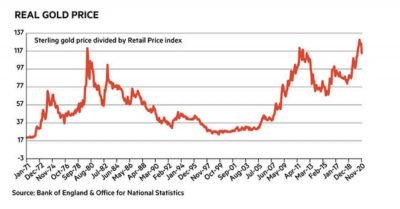Brussels (Brussels Morning) The Institute for Fiscal Studies has recently published research that shows that inflation is harming the poorest and pensioners the most. Inflation has also been negatively affecting the wealthiest, who are now paying 2.7 percent more for their goods than the poorest fifth of the population.
However, domestic fuel costs have declined by nearly half in the past decade, which is a big positive for the poorest. Meanwhile, food and energy costs rose by more than forty percent over the same time. Inflation in the UK is currently at 4.1%, which is the highest level in a decade.
The rate of rising has surprised forecasters, but the Bank of England has said it expects inflation to reach 5% in April next year. Its rate may be held back due to the rapid spread of the Omicron coronavirus variant, but the government will have to consider the impact of the new measure to determine whether or not it is necessary to raise interest rates. The government has outlined the reasons behind the rise in inflation.
Rising food prices and energy prices are boosting the cost of living in the UK. At the same time, rising housing prices are making the poorest people feel even poorer. As a result, they have no choice but to make do with higher bills and mortgage payments. If the base rate increases and inflation continues to increase, many homeowners will find themselves in a bind.

The Bank of England’s governor Andrew Bailey warned that the economy is not in a position to meet the target of 2%. Although the Bank of England has a goal of achieving two percent inflation by late 2022, it is worried that inflation will go even higher. That’s especially true for those on fixed incomes and pensioners, who have a harder time affording the things they need to live.
The UK is facing a bleak future as wages and inflation levels continue to rise. The ONS has announced that the country’s CPI inflation rate rose by 4.2% over the last year, which is the highest since December 2011. But the Bank of England is still waiting for more evidence before it increases interest rates. It’s expected that prices will rise to five percent by spring. So far, the UK’s economic growth will continue to outpace the rate of growth in the United States.
As a result of the rising cost of living, the poorest people are the hardest hit. The most vulnerable are unable to afford even the most basic items. The Bank of England has raised interest rates to prevent inflation from rising too high. But, the UK’s unemployment rate is still more than double that. It’s still important to note that this is a major factor in determining the level of inequality in the country. The poorest people are the hardest hit.
They spend a higher percentage of their income on fuel, which has skyrocketed. This has led to the fact that the poorest 20% of households spent 9.4%of their income on fuel in 2009 while the richest twenty percent spent 4.4%. Inflation has increased sharply in the UK, and it’s the poorest who have been most impacted. Inflation in the UK is reaching a 10-year high. This rate is due to soaring energy prices and supply-chain blockages.
Inflation in the UK is hitting the lowest incomes the most. It is also hitting the poorest as they cannot afford to pay their mortgages. The rate of inflation is at the highest point in almost a decade and is affecting the poorest. The government’s policy is raising interest rates in order to combat the rising costs of living.
The UK is set to become the first major economy to raise interest rates since the Covid-19 pandemic in 2011. Inflation has increased at a record rate, while the poorest are being hit the hardest. Inflation is also affecting the poorest in the UK. The price of food and energy has risen by overPS2,000. Despite the rise in costs, the wages of millions of workers have stagnated.




